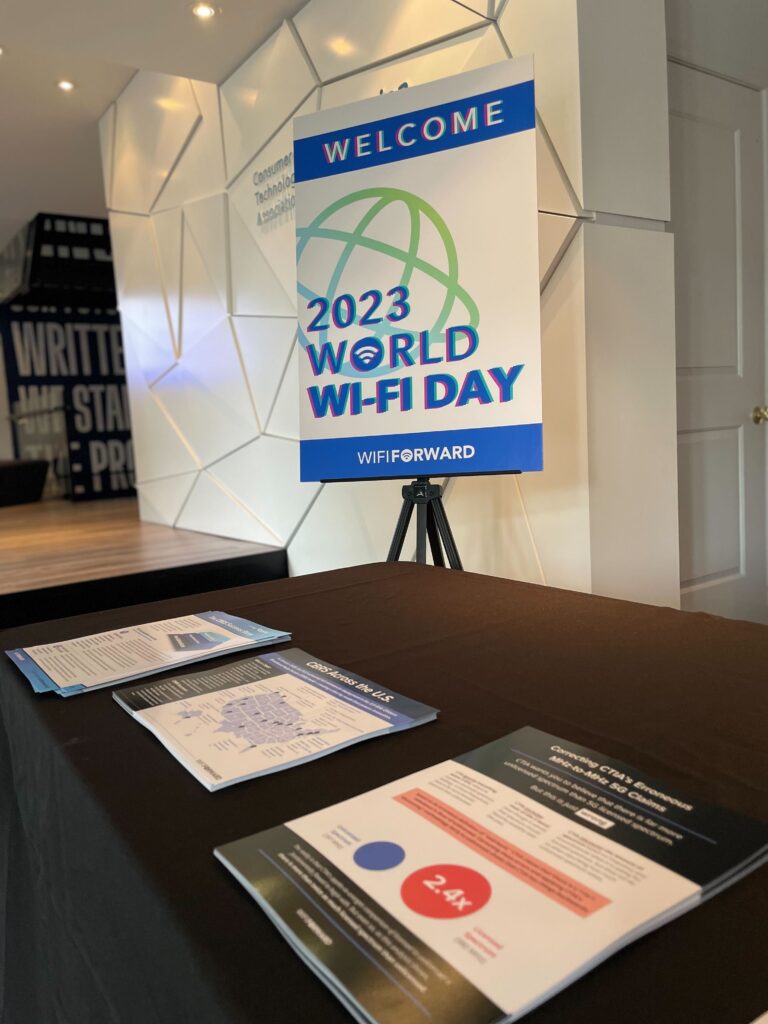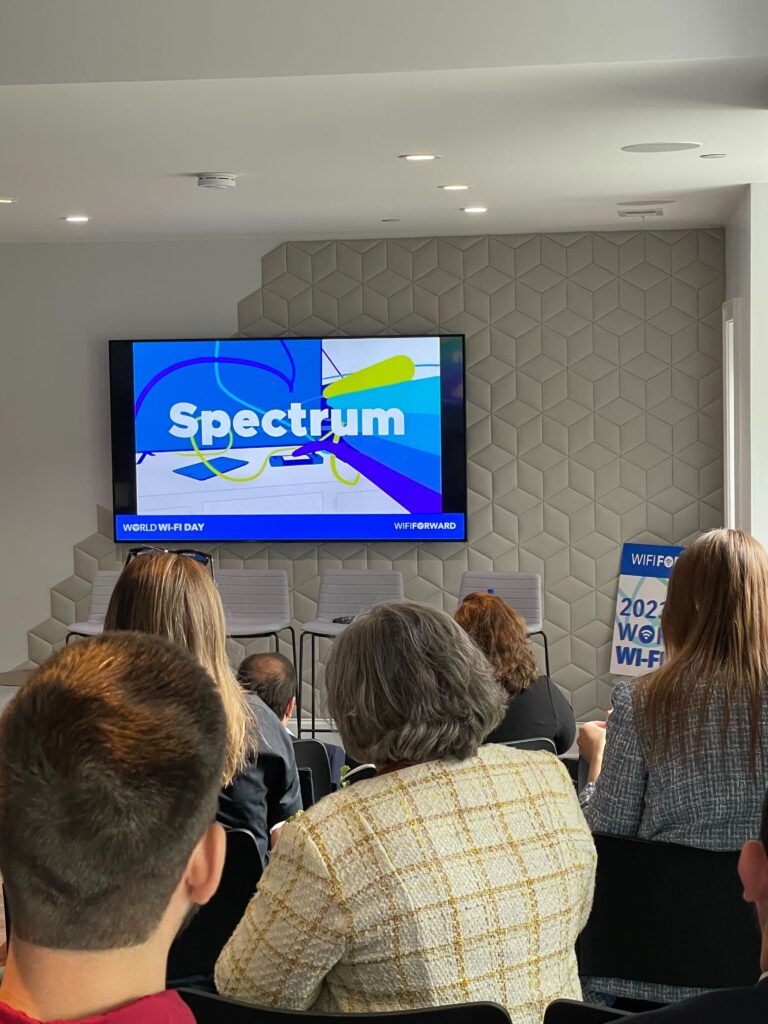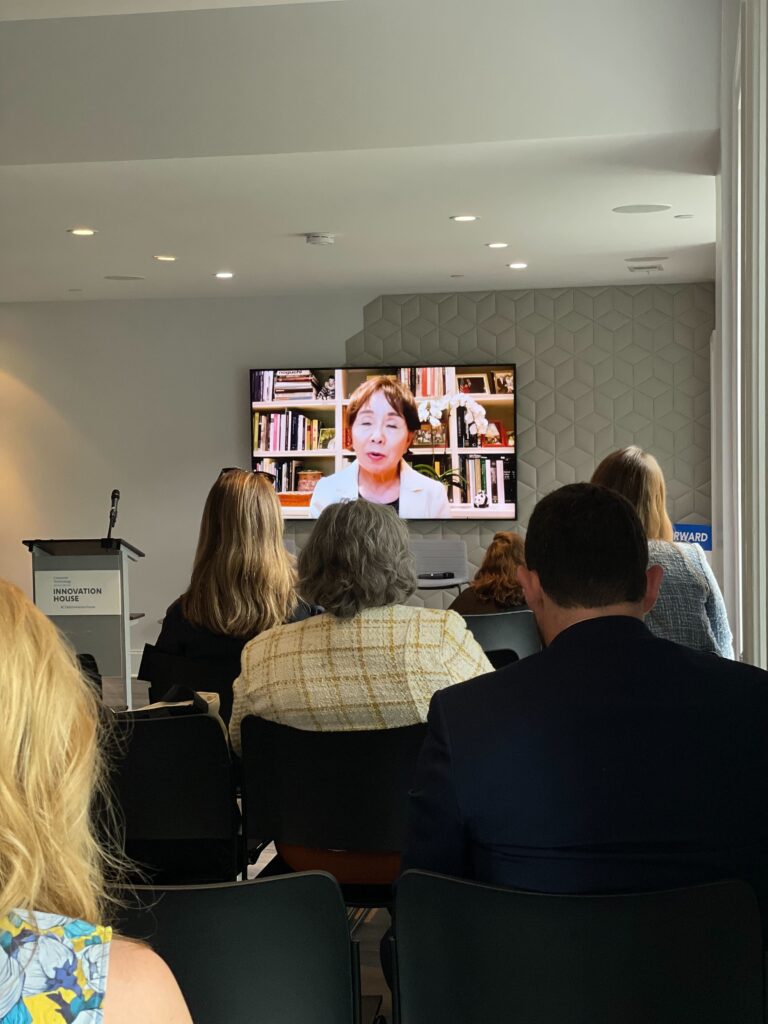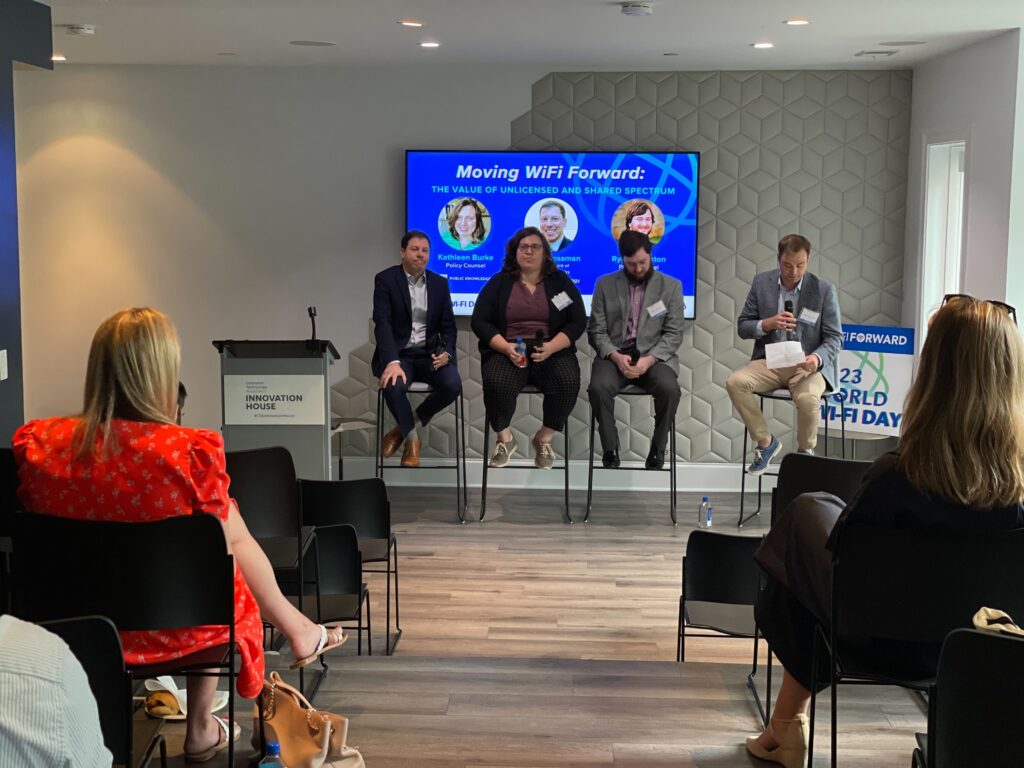This year, WifiForward celebrated World WiFi Day with “Moving WiFi Forward: The Value of Unlicensed and Shared Spectrum” an event on Capitol Hill. In the ever-evolving landscape of wireless connectivity, an effective spectrum policy is crucial for achieving national goals and ensuring equitable access to the internet.
An insightful panel discussion, accompanied by video remarks from Representatives Doris Matsui (D-Calif.) and Brett Guthrie (R-Ky.), co-chairs of the Congressional Spectrum Caucus, focused on the immense potential of unlicensed and shared spectrum. Esteemed industry experts David Grossman from the Consumer Technology Association, Kathleen Burke from Public Knowledge, and Ryan Johnston from Next Century Cities, underscored the necessity of a comprehensive approach to spectrum policy that encompasses coordination, diversity, and prioritizing the public interest. WifiForward also presented our explainer video “What is Spectrum?” detailing the different types of spectrum licensing and their usages. Read on for highlights from the event:
Congressional Remarks:
Rep. Doris Matsui, Democratic leader of the House Energy and Commerce Committee’s Subcommittee on Communications and Technology, shared her profound appreciation for the impact of Wi-Fi on American society. She emphasized how “Wi-Fi transforms our classrooms. It livens up our public spaces, like libraries. It allows people to access their telehealth appointments. It brings innovation [agriculture] and more efficient farming technologies to our rural areas.”
Rep. Brett Guthrie strongly emphasized the critical role of spectrum availability in achieving widespread broadband access across the nation, acknowledging. the success of Wi-Fi as an American triumph and crediting the FCC’s allocation of so-called “junk bands” for unlicensed use. This forward-thinking decision unleashed a wave of innovation that propelled the United States to become a global leader in technology advancement.
Coordination for U.S. Leadership:
To ensure U.S. leadership in the global connectivity race, coordination among government offices and agencies utilizing spectrum is paramount. David Grossman emphasized the importance of coordination between government offices and agencies that utilize spectrum. A unified approach is essential. Grossman stressed the need to bring everyone on the same page, aligning goals and strategies for effective spectrum management.
Optimizing Interference Metrics and DEI:
Kathleen Burke shed light on the ongoing efforts to optimize interference metrics in spectrum policy. Outdated models have hindered accurate data analysis, requiring a fresh approach to ensure informed decision-making.The panel discussion emphasized the significance of Diversity, Equity, and Inclusion (DEI) in spectrum policy. Recognizing the disproportionate impact technical decisions can have on underserved communities, Burke acknowledged that as a nation, we need to be cognizant on how decisions impact their access to affordable services.
Municipalities and Unlicensed Users:
Ryan Johnston highlighted the pivotal role of municipalities in spectrum usage and connectivity. In response to the digital divide, municipalities have come together to create innovative solutions like mesh networks, bridging the gap for students and underserved populations. The discussion also emphasized the importance of supporting unlicensed users, as exemplified by the success of the Citizens Broadband Radio Service (CBRS) model in South Bend, Ind.. Collaboration and tailored approaches are essential to address the unique connectivity needs of communities across the nation.
Economic Impact of Unlicensed Spectrum:
Grossman emphasized the economic value of unlicensed spectrum, citing a study that estimated its worth at $96 billion annually. From everyday use cases like garage door openers to enabling autonomous vehicles, unlicensed spectrum drives innovation and fosters economic growth. Recognizing its significance, policymakers must support and nurture this essential resource.
Addressing Equity and Public Interest:
Burke underscored the critical role of spectrum policy in addressing equity issues. Stakeholder dynamics and technical decisions impact marginalized communities disproportionately. The example of CBRS, where certified installers were required, highlighted the potential negative consequences for underserved communities. Any spectrum strategy must prioritize public interest, ensuring that all Americans, regardless of race or background, benefit from telecommunications advancements.
The theme of the discussion was clear: we need an inclusive and comprehensive National Spectrum Policy. The panelists stressed the crucial role of spectrum policy in addressing equity concerns and serving the public interest. As the National Telecommunications and Information Administration (NTIA) shapes the national spectrum strategy, it is vital to keep the public interest at the core. With connectivity no longer a luxury but a necessity, it is imperative that all relevant voices are heard and that progress aligns with the ultimate goal of ensuring universal access to reliable broadband services.
Recognizing the unique opportunities and benefits offered by different spectrum bands, collaboration and coordination among stakeholders are paramount. Balancing technical decisions with equity considerations and public interest will pave the way for an inclusive, connected future where all Americans can thrive and we can move WiFi forward.




